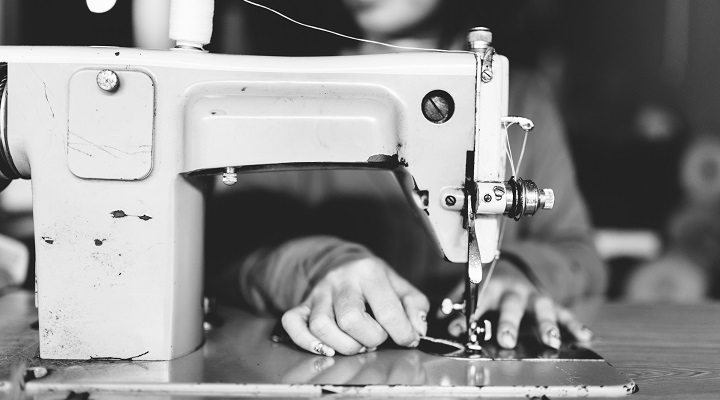Garment workers, who were some of the first people to feel the impact of Covid-19 when China shut its factories in February 2020, are still bearing the brunt of the pandemic over one year later. The last two weeks have seen local governments in some of the world’s biggest garment manufacturing hubs, including India, Bangladesh and Cambodia, reinstate lockdowns amidst surging case numbers, even as life begins to return to normal in countries like the US and UK. “The impacts to our
to our suppliers and their employees are significant and ongoing,” Erika Martin, ethics and sustainability manager at Australian women’s fashion brand Elk, told Inside Retail.
Elk sources from dozens of Tier 1-4 suppliers in China, India, Vietnam and the Philippines. Unlike some brands, when Covid-19 hit, the business didn’t cancel any of its existing orders or negotiate price or trading terms, and it committed to receiving and paying for any products that had already been produced.
“Thankfully, none of our suppliers have gone out of business, however many were left holding finished product cancelled by other brands. Some have had to close or downsize their facilities,” Martin said.
“We are sadly seeing many of the factories reporting a reduced workforce, with updated figures from 2020 and early 2021, indicating between 20 per cent to 60 per cent fewer employees at many sites.”
While some of Elk’s suppliers have been able to open up again and their production is picking up, some are still significantly impacted, such as the brand’s suppliers based in India.
Cure worse than the disease?
With a new daily case count of more than 360,000, India is in the midst of a deadly second wave of Covid-19. To combat this, parts of the country have been put back into lockdown, including Bengaluru, a manufacturing hub that is home to approximately 500,000 garment workers.
Many are now facing weeks without wages, leaving them unable to buy food and pay rent. India’s Garment and Textile Workers Union (GATWU) is lobbying the government to either allow factories to reopen with social distancing precautions, or pay workers’ salaries while factories are closed.
“We welcome the steps taken to prevent Covid infection. But the government needs to worry about the security of laborers’ wages,” the union wrote on Facebook this week.
GATWU claimed that lockdowns last year forced many garment workers to take out loans to pay their rent and skip meals, causing malnutrition.
Bangladesh, which has also experienced a second Covid wave, is allowing factories to operate at 50 per cent capacity following industry pressure. The Garment Manufacturers Association in Cambodia, where Phnom Penh was recently put back into lockdown, is calling on the government to do the same.
“We all know this pandemic is serious but at some point, we have to ask – is the cure worse than the disease?” Mostafiz Uddin, managing director of Denim Expert and founder & CEO of Bangladesh Apparel Exchange, said, according to Ecotextile News.
Part of the team
As many as 150 million people could be pushed into extreme poverty by the end of 2021 due to pandemic-related lockdowns, according to the World Bank. And in the garment sector, the impact of lockdowns has been exacerbated by brands cancelling orders or refusing to pay suppliers for orders that were already in production.
More than 1,000 Bangladeshi garment factories had their orders scrapped in March 2020, impacting the lives of 1.2 million garment workers, then-president of the Bangladesh Garment Manufacturers and Exporters Association Rubana Huq said in a message to brands on LinkedIn.
As consumer spending dropped sharply, global brands cancelled or withheld billions of dollars in payments to suppliers operating in countries where government support was extremely limited or nonexistent.
“It was pretty devastating for hundreds of thousands of garment workers in Cambodia,” James Bartle, founder and CEO of ethical jeans brand Outland Denim, told Inside Retail.
“Unfortunately, brands operated with very little integrity in many cases, where it was just about cancelling orders, and the flow-on effect to the people working in those factories was devastating, making them more vulnerable to human trafficking.”
Bartle, who founded Outland Denim as a way to provide employment to people who have experienced or are vulnerable to human trafficking, believes brands and retailers need to consider garment workers as part of their team.
“No longer can we avoid that,” he said. “They are our responsibility.”

